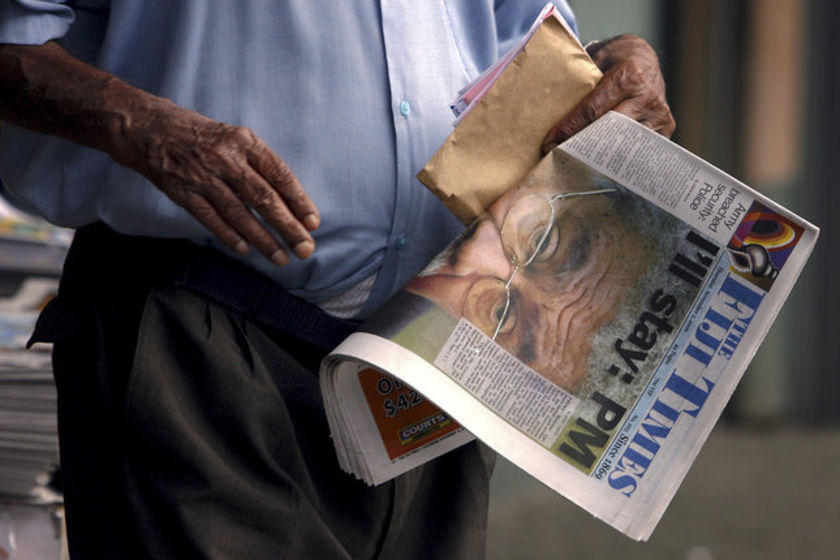
Fiji’s draft media decree is draconian and punitive and will fail as a development communication model, says the head of the New Zealand-based Pacific Media Centre.
“Many aspects of the draft law are deeply disturbing and the harsh proposed penalties for editors and journalists who fall foul of the rules will curb any hope of a return to an independent Fourth Estate,” said associate professor David Robie, the centre director.
|
“This will be a blow to media freedom throughout the Pacific and provide a damaging precedent for other politicians keen to rein in a free press.”
The draft Media Industry Development Decree 2010 provides for the establishment of a Media Industry Development Authority (MIDA) to “encourage, promote and facilitate” news media organisations and services at a “high standard” and a statutory Media Tribunal to judge complaints against media.
Dr Robie also condemned the new provision restricting foreign ownership to 10 percent of a media organisation and directorships to Fiji citizens who have been residing in the country for five of the past seven years.
“This is clearly a vindictive section aimed at crippling the Fiji Times, the country’s largest and most influential newspaper, which is owned by a Murdoch subsidiary, News Limited,” he said.
“The regime wants to put the newspaper out of business, or at least effectively seize control.”
He said other media, such as the struggling Fiji Daily Post, which has a 51 per cent Australian ownership, would also be hit by this restriction.
Other concerns about the draft law cited by Dr Robie, who is also convenor of the PMC’s Pacific Media Watch project, included:
• Too much power being vested in the ministerial-appointed director of the MIDA and chairman of the Media Tribunal. Both agencies needed wider community representation and independence.
• The power to investigate suspected breaches of the decree and to search and seize
documents and equipment (with a warrant) – this would be the “death knell” of investigative journalism.
• A requirement that all news reports publish a “byline” identifying the author.
• The power to punish media organisations guilty of an offence under the decree with a fine of up to F$500,000, and individual editors and journalists with a fine of up to $100,000 or a maximum jail term of five years.
• The power to proactively investigate a media organisation without a public complaint being filed.
“This opens the door to vindictive abuse in a climate of dictatorship and the singling out of media organisations that do not toe the regime line,” he said.
“There is a case to be made for better engagement by media on national development issues, but this should be achieved through more journalism training and education and more support for the country’s journalism schools and training institutions, such as the University of the South Pacific,” Dr Robie said.
“A government cannot legislate people’s minds. Much more can be achieved by freeing up the media environment, backing off from censorship and engaging with the media in a more cooperative manner.
“To get its own side of the story across, the Fiji regime should establish a national news agency like many developing countries do and let the media get on with its job of reporting unfettered in the public interest.”
Codes of ethics previously administered by the self-regulatory Fiji Media Council have been
incorporated into the draft decree as statutory schedules.
It is not yet clear what future role the council would have as the authority and tribunal would overtake its powers.
• The draft decree is on the PMW database is at:




